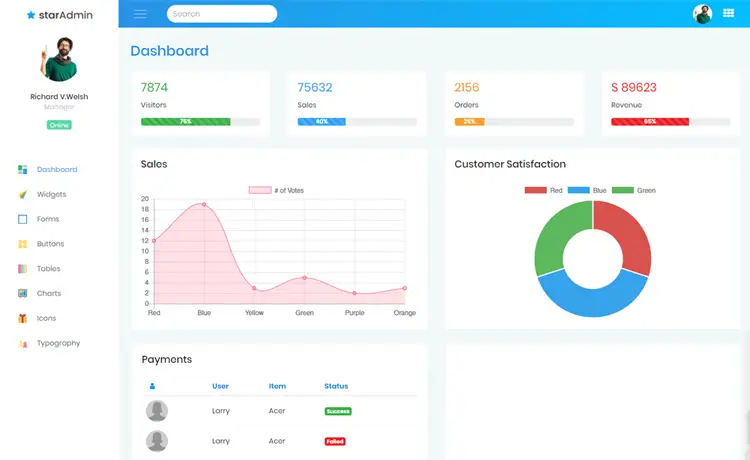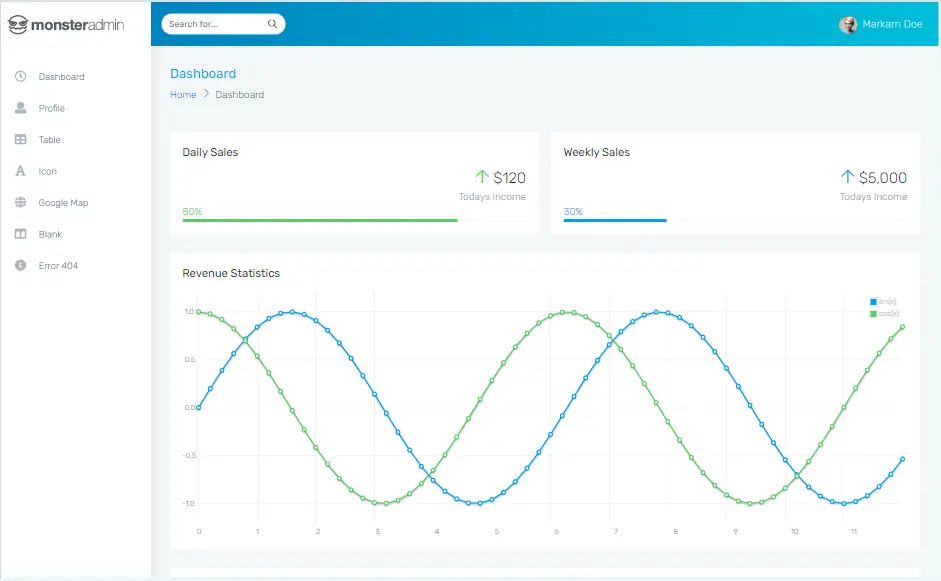How to custom exception handling in ASP.NET Core
By Tan Lee Published on Nov 13, 2024 523
In November 2023, ASP.NET Core 8 introduced a new preferred path for exception handling using the IExceptionHandler interface.
For example:
using Microsoft.AspNetCore.Diagnostics;
class CustomExceptionHandler : IExceptionHandler
{
public async ValueTask<bool> TryHandleAsync(
HttpContext httpContext,
Exception exception,
CancellationToken cancellationToken)
{
// Your response object
var error = new { message = exception.Message };
await context.Response.WriteAsJsonAsync(error, cancellation);
return true;
}
}Once you've implemented your custom IExceptionHandler, the next step is to register it as middleware in the ASP.NET Core request pipeline.
builder.Services.AddExceptionHandler<CustomExceptionHandler>();
app.UseExceptionHandler(_ => {});In ASP.NET Core 8, to make the AddExceptionHandler work properly, you must call UseExceptionHandler in the request pipeline.
For ASP.NET Core 5 version:
app.UseExceptionHandler(a => a.Run(async context =>
{
var exceptionHandlerPathFeature = context.Features.Get<IExceptionHandlerPathFeature>();
var exception = exceptionHandlerPathFeature.Error;
await context.Response.WriteAsJsonAsync(new { error = exception.Message });
}));Older versions
app.UseExceptionHandler(a => a.Run(async context =>
{
var exceptionHandlerPathFeature = context.Features.Get<IExceptionHandlerPathFeature>();
var exception = exceptionHandlerPathFeature.Error;
var result = JsonConvert.SerializeObject(new { error = exception.Message });
context.Response.ContentType = "application/json";
await context.Response.WriteAsync(result);
}));When adding custom exception handling middleware in ASP.NET Core 3, ensure it is registered before MapControllers, UseMvc, or UseRouting in the request pipeline.
The order of middleware is important because ASP.NET Core processes requests sequentially.
- Implement security headers for an ASP.NET Core
- How to add security headers to an ASP.NET Core Application
- How to Initialize TagHelpers in ASP.NET Core with Shared Data
- Boost Your ASP.NET Core Website Performance with .NET Profiler
- The name 'Session' does not exist in the current context
- Implementing Two-Factor Authentication with Google Authenticator in ASP.NET Core
- How to securely reverse-proxy ASP.NET Core
- How to Retrieve Client IP in ASP.NET Core Behind a Reverse Proxy





